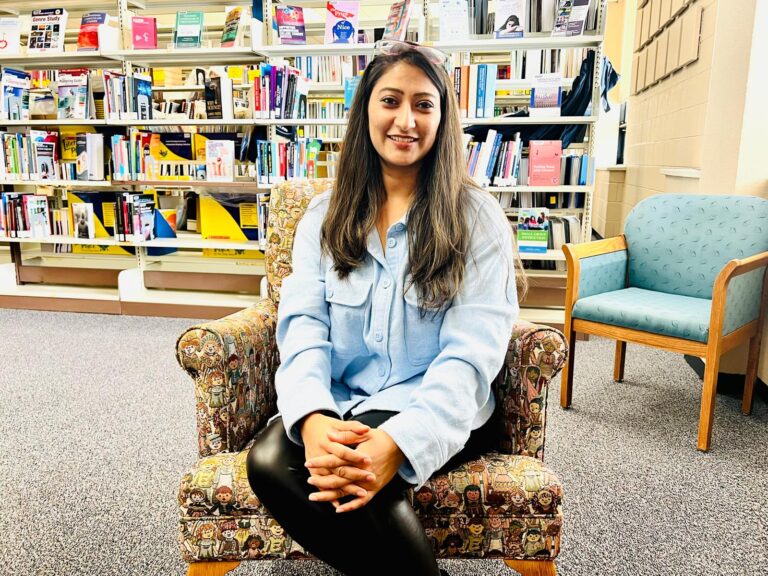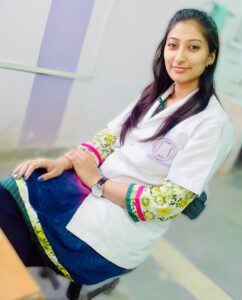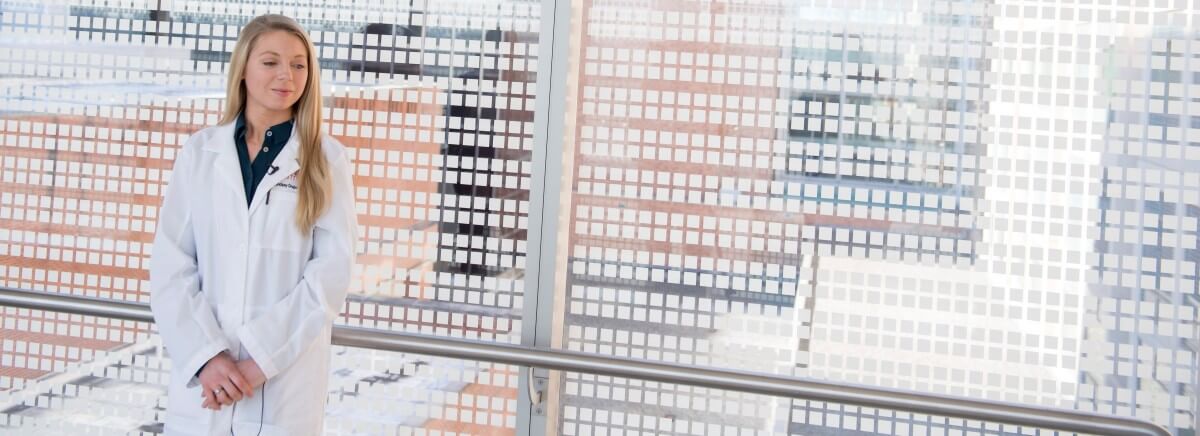
“Sometimes, life has an interesting way of presenting new paths – and it ends up in an unexpected destination.”
This is what Kanika Mathur says about her changing careers from dentistry to computer science.
Her initial interest in dentistry began at a very young age and she pursued a dental profession back in India where she originally hailed from.
“It was a combination of my personal experiences and a genuine interest in the healthcare industry that primarily led me to dentistry,” says Mathur. “I was fascinated by the blend of art and science that it involved, and always thought of how it could make an incredible difference in other people’s lives.”
Upon completing her dental education, Mathur stayed in India to work for a few years. True to her belief, she made a great difference – she was able to help many people improve their overall health and well-being.
Being a dentist was fulfilling – but Mathur wanted more. In 2020, she decided to move overseas to pursue a career in computer science.
“My decision to switch to computer science was not made overnight,” admits Mathur, who cites her big move as not just geographical, but also professional. “It was driven by a long-standing interest in computers and technology. Over time, this interest evolved, and I was inspired by witnessing how technology was rapidly transforming the healthcare sector, particularly through telemedicine, digital health records, and personalised patient care.”
Mathur believed that jumping into the tech world would land her a spot in shaping the future. Determined to learn more about software development and data analysis, she made the life-changing decision to pack up, move to Canada and switch careers.

On top of being a licensed dentist, Mathur is now proficient in many programming languages. Source: Kanika Mathur
Making the switch
When she first moved to Canada, Mathur faced many challenges.
Changing careers and moving countries weren’t easy. The learning curve was drastic, especially as she knew no one and was plagued by self-doubt.
“Changing careers required me to start from scratch in almost every way imaginable – from the books I read and the people I connected with, to my entire way of thinking and the skills I needed to develop,” she says.
“But it was exciting to take on the adventure and challenge of the transformation, and learn to bridge the knowledge gap between two vastly different disciplines.”
The first step Mathur took towards her new path in life was to enrol herself in university all over again.
She attended the Memorial University of Newfoundland, pursuing an undergraduate degree in Computer Science, where she learned about fundamentals, several programming languages and common software development practices.
“It was a very steep learning curve, especially coming from a non-technical background,” says Mathur.
She sought out online courses in full-stack development while taking her degree, which allowed her to build industry-grade projects and helped her hone her technical skills. “My commitment to continuous learning and improvement kept me motivated,” she says.
Thankfully, Mathur could rely on the transferable skills she developed while practising dentistry.
Attention to detail, problem-solving abilities and communication skills were invaluable, even in computer science.
“These enhanced my coding skills, allowed me to think critically, and helped me effectively collaborate with peers,” she says.
All of these skills came in particularly handy for professional networking. Mathur worked tirelessly to seek out communities, societies and events related to tech and meetups.
“I became an executive member of the Computer Science Society at the university, got involved as a student member at TechNL, a non-profit association supporting innovative tech ecosystem in Newfoundland and Labrador, and joined Tequity+, a place for women to connect and share ideas,” Mathur says.
“It gave me opportunities to meet many like-minded professionals and mentors who helped me gain insights into the tech industry.”
When Mathur learned about her programme’s co-operative component, she was eager to take part and signed up.
This then led her to an eight-month work term as a software developer with Enaimco, a global SaaS company headquartered in St. John’s, Newfoundland.
“Being able to work on real projects, solve problems as they come up, and see the impact of what I am creating – it has just been an amazing experience,” says Mathur.
She is extremely grateful for the mentorship and connections she received during her time at Enaimco, citing her experience as a critical component of her development as a software developer.
With what she learned, she now faces challenges not with trepidation but with the confidence of solving them in a gratifying manner.
“It’s a continuous learning process that keeps my work dynamic and engaging, ensuring that no two days are the same,” says Mathur. “The core of computer science is solving problems, and the satisfaction that comes from finding a solution to a challenging issue is unparalleled.”

Mathur has mastered programming languages such as TypeScript, JavaScript, Java, Python, HTML5, and CSS. Source: Kanika Mathur
The very real challenges of changing careers
Of course, it wasn’t all sunshine and dewdrops after making such a drastic switch. Mathur initially struggled with her transition, feeling doubtful about her decision.
“I used to think sometimes – I was made to find bugs in teeth; why am I here finding bugs in code?” she jokes. She describes how she was frequently reminded that her new peers have been in the computer science field for years, and felt like there was no way she could catch up.
“I countered those feelings with realistic goals, gave myself treats for small wins,” Mathur says. “Most of all, I reminded myself that expertise comes with time and experience. Plus, I had great help.”
Mathur was fortunate enough to have a supportive community of mentors, whether at university or at her internship. Her supervisor at Enaimco, Ron Parrott, cites her as a “breath of fresh air.”
“Kanika is a real go-getter and fast learner, exactly the type of student we look for in a co-op recruit,” he says.
Besides Parrott, Mathur has worked with female classmates and colleagues, who were great support for her while she was changing careers.
“I gained valuable advice from women colleagues who are making an impact in STEM,” she says. “These relationships not only provided me with guidance and encouragement, but also highlighted the importance of mentorship and support networks in navigating the tech industry.”
Since her first step into the field, Mathur believes that the STEM fields have evolved.
“It’s definitely heartening to see a growing awareness and push for women’s inclusion in the STEM field and more,” she says. “Organisations, schools and universities are stepping up and encouraging young girls and women to explore things like computer science, technology and more. These efforts are slowly but surely leading more women into STEM careers and building a more diverse future.”
Having worked a few years in dentistry and now computer science, Mathur says it’s a nice change to see companies emphasising diversity and inclusion in their hiring practices. She envisions the tech world as a place where women too, can find their spot and thrive just like their male counterparts.
“It’s clear that there’s a continuous effort to open these fields up to everyone,” she says. “It’s a great sign of positive change!”
Mathur is eager to see further changes in the industry to welcome more women like her. To her, it’s all about building a strong foundation and having a supportive community, while ensuring that workplaces provide everyone with equal opportunities.
“From hiring processes to promotions, we need to ensure everyone gets a fair shot,” she says. “For example, mentoring is great – when you have someone to guide you, share their experiences and open new doors, that can make all the difference.”
She admits that it’s hard. Most workplaces in the STEM industry still have yet to tackle unconscious bias about women, let alone have great mentors to guide women like her to success. That’s what the industry needs – amazing, female mentors who are ready to guide and inspire.
“We should not underestimate the power of seeing women who have succeeded in STEM; their stories need to be out there, loud and proud, to inspire the next generation,” says Mathur.
The best tip for anyone thinking about changing careers
After making such a bold switch from dentistry to computer science, Mathur has some advice for those who want to follow her footsteps.
“My advice to anyone considering a similar switch is to embrace the journey,” she says. “Build a strong support network, engage in hands-on projects, do not shy away from challenges, and persistently hone your skills.”
Whether it’s pulling a tooth, optimising an algorithm, performing a root canal, debugging code, or designing a new feature, Mathur is optimistic about the future ahead of her.
“Life is a series of adventures, and it’s never too late to embark on a new one if it aligns with your passion and goals.”










